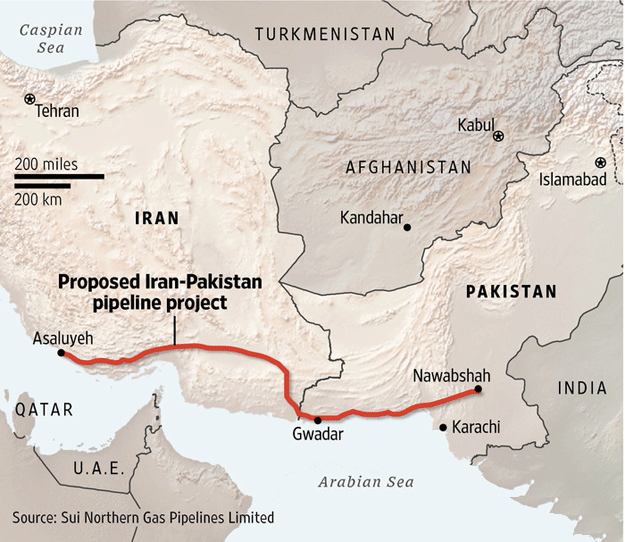Iran threatens arbitration over Pakistan's delays in gas pipeline project
The Foreign Policy article provides a comprehensive analysis of the ongoing challenges surrounding the Iran-Pakistan gas pipeline project, highlighting the complex interplay of geopolitical, economic, and strategic factors impacting Pakistan’s position.
The article begins by noting Iran’s recent move to take Pakistan to arbitration in Paris for failing to fulfill its commitment to construct the Pakistani segment of the pipeline. The project, initially agreed upon in 2009, has been marred by delays, primarily due to Pakistan’s apprehensions about potential US sanctions. This situation underscores Pakistan's broader geopolitical and economic struggles, illustrating how these challenges hinder the country's pursuit of national interests.
Proponents in Pakistan argue that the pipeline could address the nation's chronic energy shortages at a lower cost than imported oil. Iran claims that the pipeline could deliver between 750 million to 1 billion cubic feet of natural gas per day, which is crucial as Pakistan’s proven gas reserves are expected to deplete within 12 years. Despite Iran’s completion of its portion of the pipeline in 2012, Pakistan has yet to commence its segment, having only recently pledged to build the first 50 miles without securing necessary land.

Pakistan’s reluctance is driven by concerns over damaging its relationship with Saudi Arabia, a rival of Iran, and the risk of US sanctions. Although the Saudi-Iran rapprochement might have alleviated some concerns, heightened US-Iran tensions make a sanctions waiver unlikely. The US has consistently opposed the pipeline, emphasizing the risks of sanctions.
The article also contrasts Pakistan’s geopolitical and economic constraints with India’s relative autonomy. India, with greater global influence and fewer dependencies, can navigate business with Tehran more effectively. In contrast, Pakistan’s economic vulnerabilities and dependence on foreign financing, including from the IMF, limit its room for maneuver. The country faces a potential penalty of up to $18 billion if it withdraws from the project, prompting Islamabad to seek negotiations with Tehran for a feasible resolution.
In conclusion, the article presents the pipeline project as a cautionary tale for Pakistan, illustrating the difficulties of leveraging energy security opportunities amid significant geopolitical and economic constraints. It suggests that Pakistan should focus on negotiating a manageable penalty and explore alternative energy solutions while keeping future options open if the geopolitical landscape shifts.








